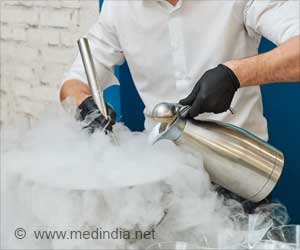- Finding ways to minimize the pain caused by cancer can have an impact on the quality of life
- Acupuncture is one of the techniques tried to manage both pain and anxiety caused by cancer
- However, it’s advised that treatment decisions be made in consultation with a medical professional
How does Acupuncture Work?
Acupuncture is defined as a practice used in traditional Chinese medicine in which thin needles are inserted into the skin to trigger strategic points in the body. There are approximately 365 primary points on the body that are targeted in acupuncture for different purposes (1✔ ✔Trusted SourceThe National Center for Complementary and Integrative Health (NCCIH). Acupuncture: What You Need To Know.
Go to source). Alternatives to needles can also be used for acupuncture treatment, such as magnets, tiny seeds held in place with adhesive, or simply manual pressure applied via fingertip.
Can Acupuncture help with Gynecological Cancer Treatment
A total of 99 patients with gynecologic cancers participated in the study. 45 in Group A, 25 in Group B, and 29 in Group C. Group A participants received acupressure 3 hours before surgery and continued until the patient began undergoing general anesthesia.Group B participants received preoperative acupressure only, and group C participants received standard care. Both before and after surgery, patients completed questionnaires that scored the quality of their recovery and included questions about pain, anxiety, and other quality-of-life parameters.
Postoperative scores overall were higher in Groups A and B—indicating better recovery—than scores in Group C. Group A scores related to severe pain were significantly higher than Group C scores. Both intervention groups had higher scores than controls in terms of scores related to anxiety and depression.
These findings show that the inclusion of preoperative integrative medical touch and relaxation therapies for anxiety, along with intraoperative acupuncture for pain and other quality-of-life-related concerns, should be considered for patients undergoing gynecological oncology surgery (2✔ ✔Trusted Source
Acupuncture during gynecological oncology surgery: A randomized controlled trial assessing the impact of integrative therapies on perioperative pain and anxiety
Go to source).
Training in such ‘integrative oncology’ is needed for complementary medicine providers, acupuncturists, surgeons, anesthesiologists, and operating room nurses, who need to work together and communicate with integrative oncology practitioners in the complex operating room setting.
References:
- Acupuncture: What You Need To Know( https://www.nccih.nih.gov/health/acupuncture-what-you-need-to-know)
- Acupuncture during gynecological oncology surgery: A randomized controlled trial assessing the impact of integrative therapies on perioperative pain and anxiety .( https://acsjournals.onlinelibrary.wiley.com/doi/10.1002/cncr.34542)
















